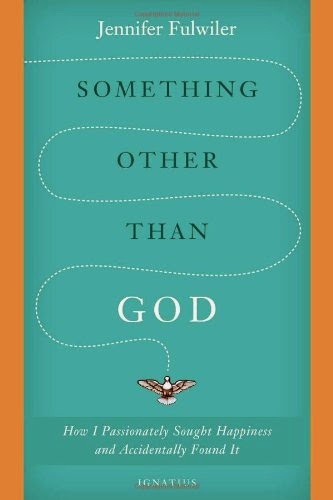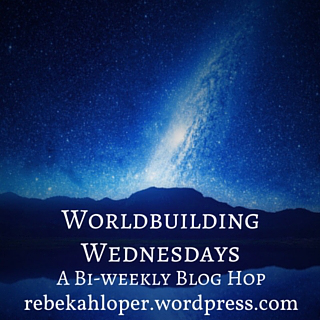Review: Something Other Than God
Minutes ago I finished reading Jennifer Fulwiler’s new book, Something Other Than God. I began following her blog somewhere around 2007 or 2008 and still eagerly await each post, so of course I got the book (Kindle version) as soon after publication as I could. And rather than write a post here, I thought about writing a review on Amazon along the lines of the following:
“If you have ever asked yourself questions like, ‘What kind of people might be recruited to help a wounded yeti safely through a metropolitan area?’ or ‘How might I be able to really sock it to that smug-looking stuffed animal over there?’ or ‘I wonder if there is a way to make my ear canals a little sexier?’…well…you may have written this book. But if any of these questions piques your interest, you just might want to at least check it out….”
But I decided against it, because honestly, this book is just too weighty to sum up in a few humorous (and slightly stretched…?) sentences. While it made me laugh a few times, there were also many points where I was on the verge of tears (especially the last several chapters). I found the reasonable thought processes and the practicality appealing. The writing style kept me riveted and I read through the entire book rather quickly and without getting bored ever. But even more than all that, I was drawn to the ways in which God revealed Himself to this inadvertent seeker.
Jennifer struggled with vivid and valid questions about injustice and suffering. She deeply questioned the apparent inconsistency of God in terms of whose prayers He answered and whose He didn’t…why He sustained and/or protected some people and allowed great sorrow and suffering in other cases…why death, in all its unpredictability and sorrow and tragedy, hovered as the backdrop of each person’s life, more conspicuously present and vivid for some than for others.
I have had my own internal battles to understand suffering and injustice and death. One of my poignant memories in this area occurred probably four years ago after a long-term off-and-on battle with depression and hopelessness. I felt such unalleviable angst that I found myself driving to a cemetery on the edge of town, where I wandered from one crumbling gravestone to the next, weeping with sorrow over the life thereby represented, and over the fact of that last marker of someone’s existence now decaying into impending oblivion.
After a lot of grappling on these subjects, on page 227 Jennifer states, “I’d always heard the ticking of the clock that counts down the seconds as we all get closer to death; now I should see its ticking as a countdown to the end of unjust suffering.” She does not reference simply death here, and a complete end of one’s existence, but to God’s intervention in human history and suffering to establish a way to enter an existence as He had originally planned for humanity – one free of sin and its consequences of evil and injustice and sorrow: in short, heaven.
I love the hope that emanates from this memoir. I am so thankful Jennifer worked so long to produce this account of her initial process of encountering God. Truth be told, in the last few years I have in some ways moved in the opposite direction, occasionally even questioning the existence of the God in whom I have believed for most of my life (though even as a child I harbored some cynical questions about the validity of the Bible and its message). I have craved a more personal interaction with Him – that revealing that is so obvious in Something Other Than God. Perhaps I’ll take a page from Jennifer’s book and concentrate on getting myself in the right condition to hear from God and then see what he says.
If you don’t believe in God, and you have very good scientific reasoning for it, I think you would like this read. The logic is fascinating. If you do believe in God, but you have doubts, or even just a yearning for His presence, I think you would like the book, too. I found it spiritually uplifting.




I don't believe in God (none of them). I rejected religion in elementary school, when we had a very religious teacher who believed literary in the words of the Bible. Even for a 9 yo kid it was clear that this was nonsense. It's clear from scientific evidence that God didn't create everything in 6 days. Also, I find the idea of the one and only true God quite rediculous. There's a too strong correlation between where people are born and grown up, and which God they pray to. It's hard to argue against God using scientific arguments. Even if you believe in modern kosmologi and big bang, you can still argue that some goddy power ignited it. Religion and science are different domains, and different concepts. Religion is just a question of belief. It can really be debated. You have your belief (which I resect),and I have mine (or lack of it). I believe in ethernal life only in the sense that our biomass will be recycled back to nature. Science is about making theories and hypotheses, and then finding support for the theories in observations (experiments). Sometimes the order is swapped; the observation comes first, and the theoretical explanation later. No serious scientist deals with the existence or nonexistence of God >:)
ReplyDeleteCold As Heaven
One of the reasons I read books other people write is to try and gain an understanding of their perspectives; how and why they've reached the place they rest at today, etc. You've piqued my interest in reading this book for that very reason but also so that I might gain understanding of where and why you've come to be where you rest today.
ReplyDeleteI do believe in God and his plan for eternity. People blame him for everything bad (which is undertandable) instead of looking at the source of the bad thing. God is not a puppeteer nor a sadist. What happens on Earth stays on Earth and it will not enter heaven because his plan is not the plan of man.
ReplyDeleteI love this statement. "She does not reference simply death here, and a complete end of one’s existence, but to God’s intervention in human history and suffering to establish a way to enter an existence as He had originally planned for humanity – one free of sin and its consequences of evil and injustice and sorrow: in short, heaven." So true. Mankind messed up God's plan for a perfect life and yet we blame him.
I've enjoyed your post!